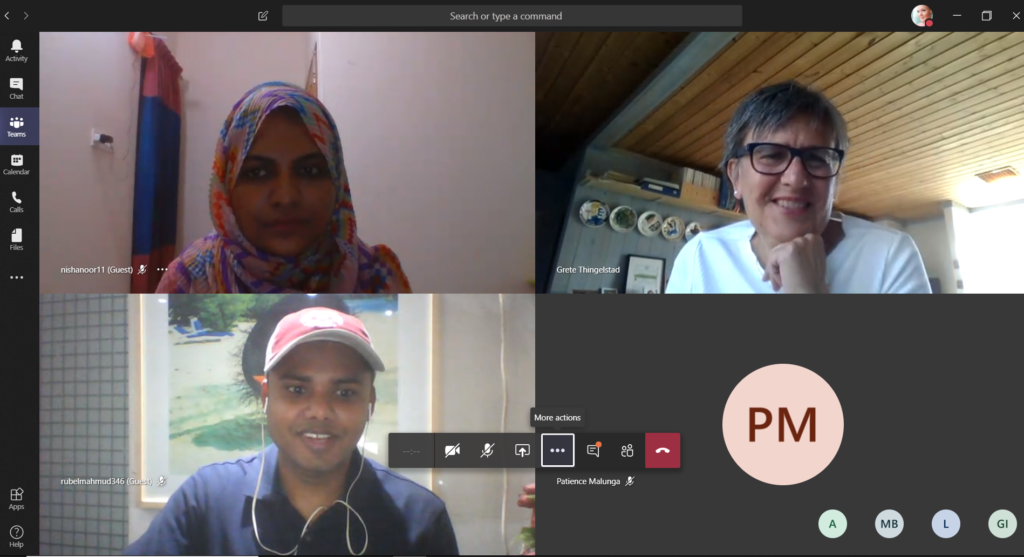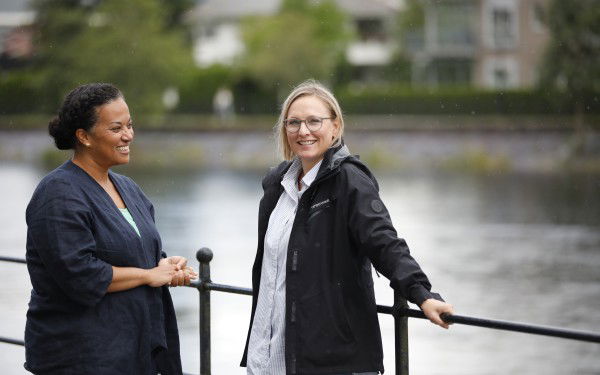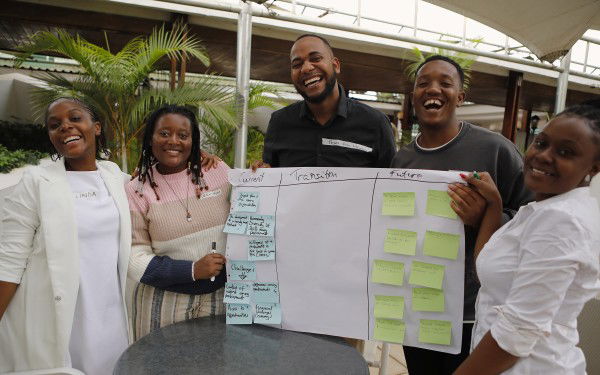Online trainings can never replace human interaction
16. June 2022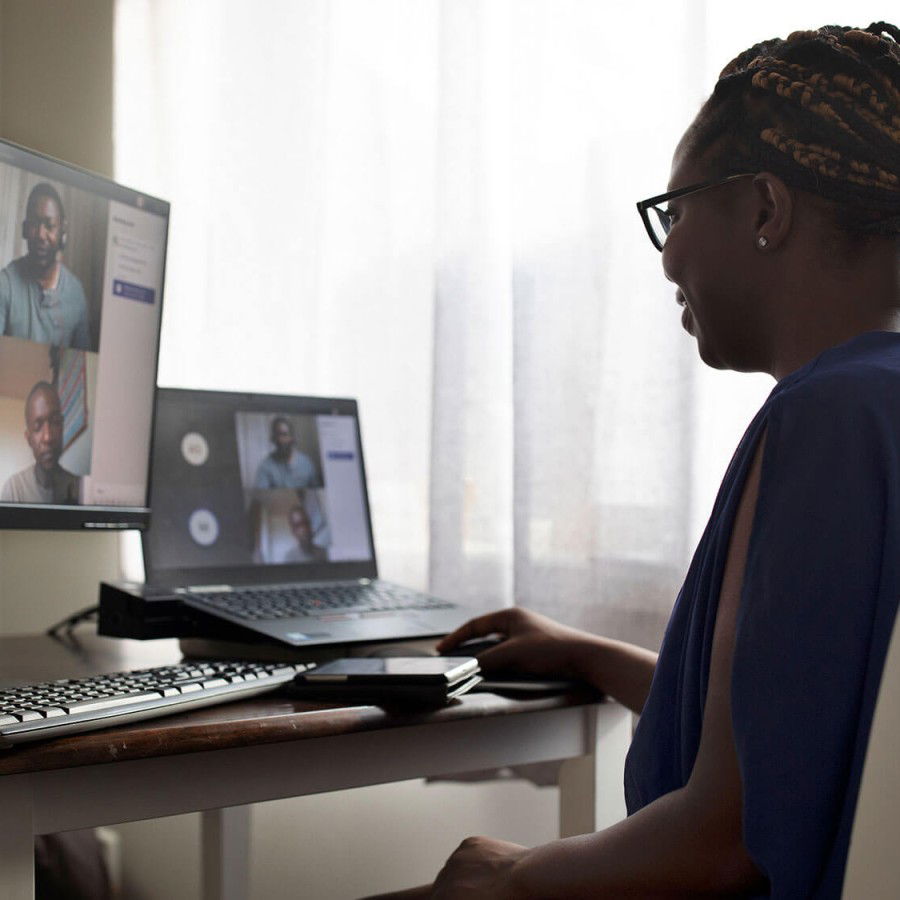
— It has been a useful substitute, given that we had to leave abruptly for home. But it can never fully replace physical meetings where experiences and knowledge is shared, says training participant Rehana Noor
In normal times, all Norec participants have to undergo trainings both when departing and returning from service. These training prepare them for the experience before departure, and allow them to debrief and reflect on how they can use the knowledge they have acquired back in their own organisation.
Over the course of the last two weeks, Norec has carried out 13 fully -online homecoming seminars for 52 participants who have had to interrupt their exchange due to the Covid-19 pandemics.
Rehana Noor was part of the first group; an partnership between WAVE Foundation and DHAN Foundation focusing on sustainable agriculture. While the four participants were thousands of kilometres apart in India and Bangladesh, they were together online in the training.
— While the pandemic has separated us physically, it has also opened up new ways of co-operation such as a digital network which we can use both now and in the future, says Rehana.
Big regional differences
There are significant differences between Norec’s partner countries in different regions when it comes to Internet access and electricity. This was a challenge when preparing for the online trainings.
— Some participants had to walk long distances to access Internet or to buy sufficient Internet services for their mobile phone, while others have been without Internet due to power cuts. This is the reality for many of our participants, a contrast to the relative easiness we have in preparing online trainings in Norway, says Patience Malunga, who is a training adviser in Norec.
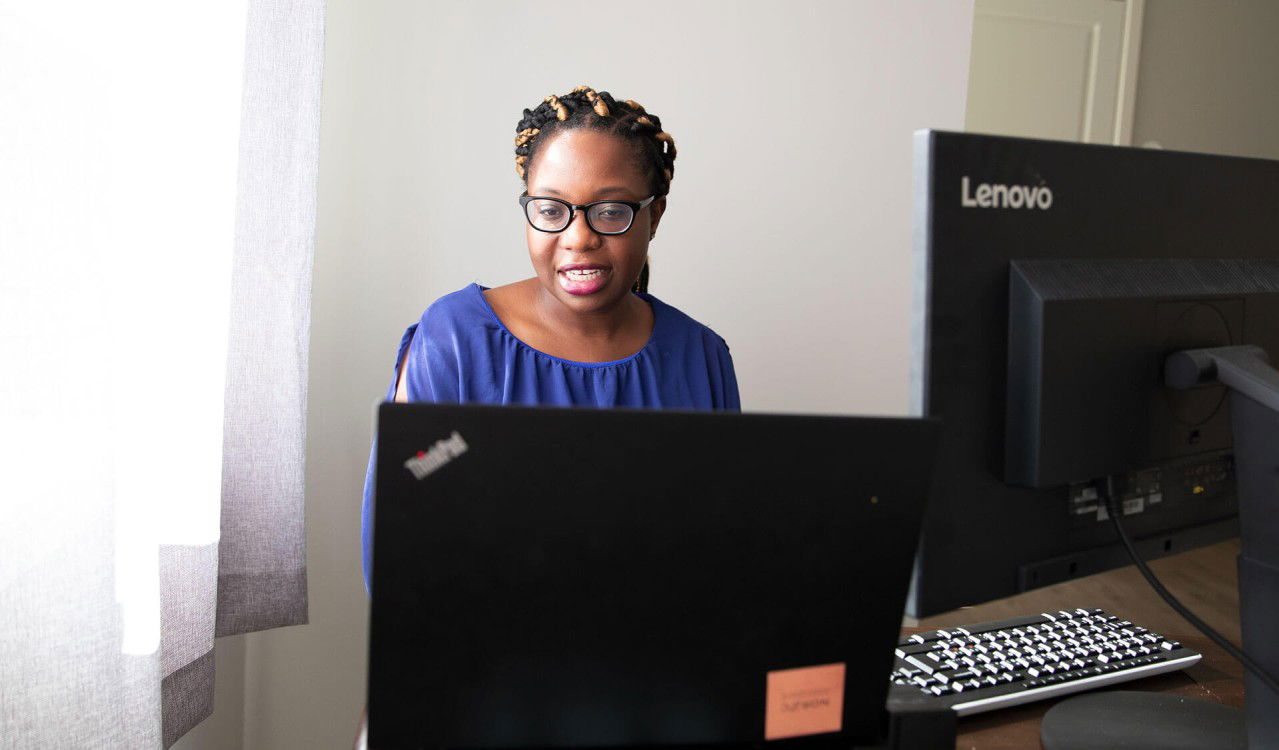
A supplement rather than a replacement
During the last months we have experiences a fast-paced digitalisation of Norway. However, similar developments are not possible over such a short period of time in many of our partner countries.
— If we rely exclusively on online trainings, many participants from the Global South will miss out due to the lack of digital infrastructure. This means that online trainings never can replace the “in person” homecoming seminars which usually last a week, Under the present circumstances, it is nevertheless extremely important that we were able to carry out our training online, Malunga says before concluding:
—These trainings have stregthened the digital competence of both the Norec training officers and our participants. This motivates us to work on digital solutions that can improve cooperation and networking in our partnerships. In the future we will utilise our experience with digital trainings as a supplement to our normal trainings, concludes Head of Section – Training Øystein Garfors.
